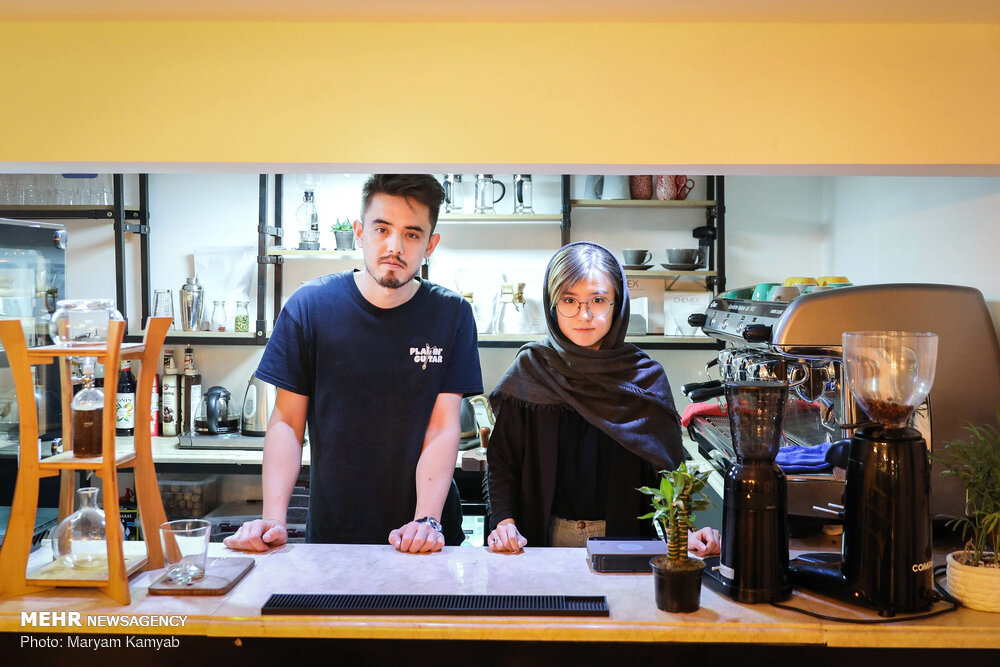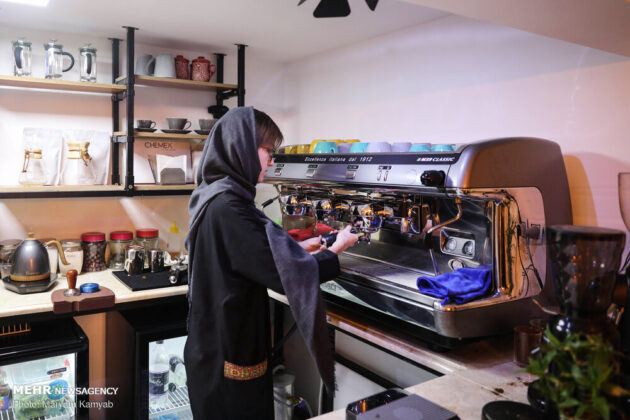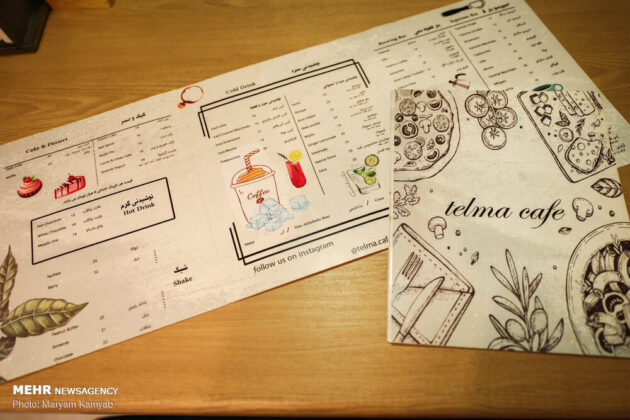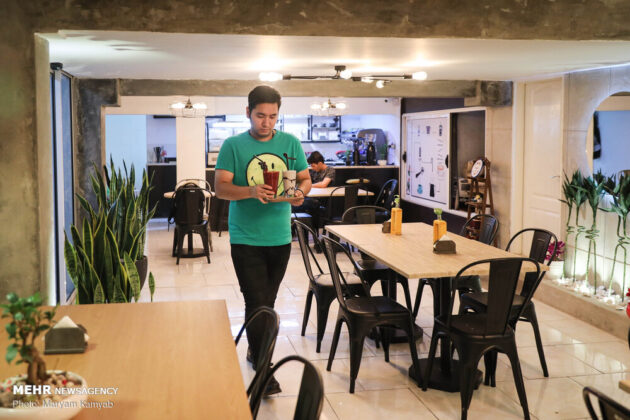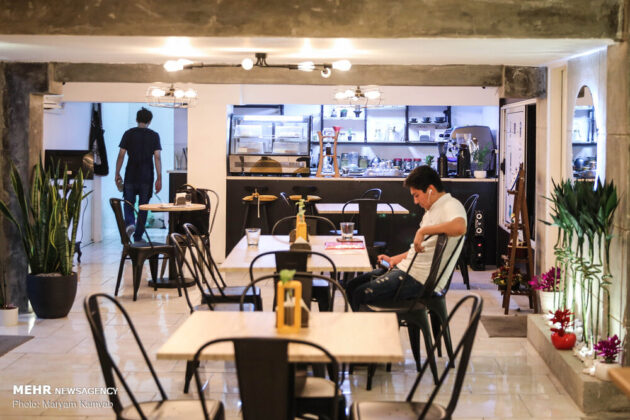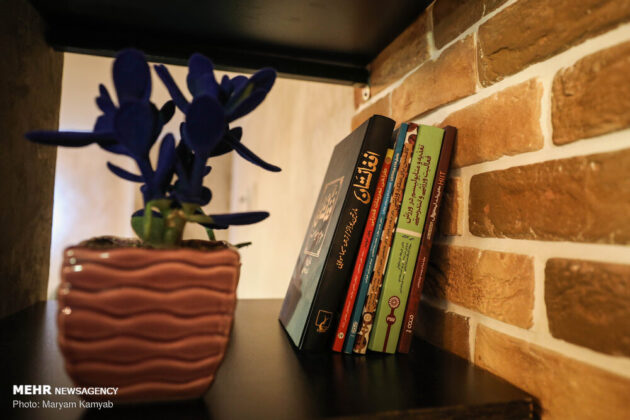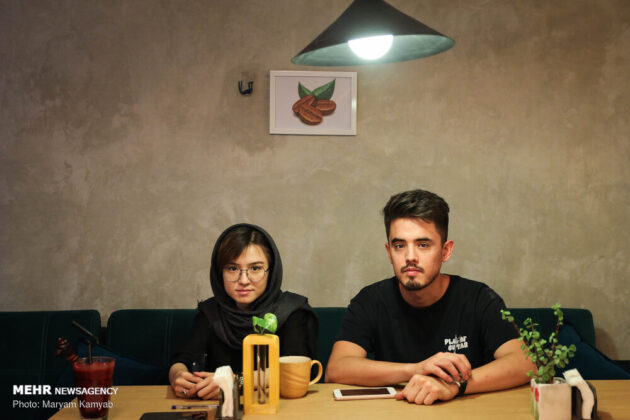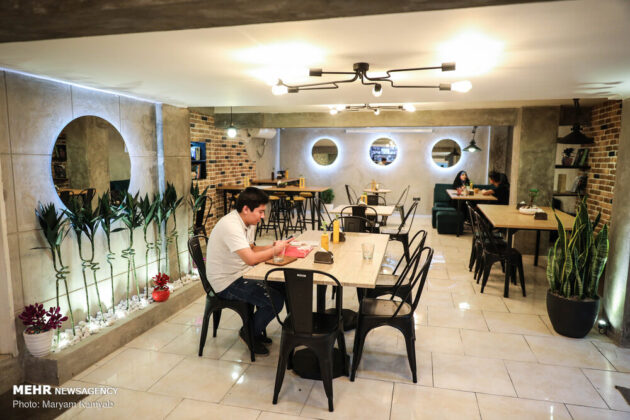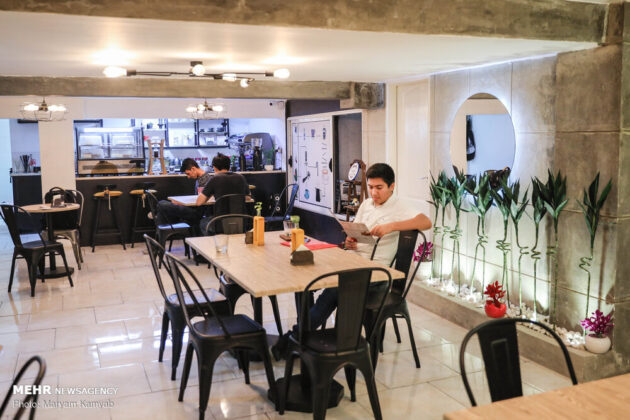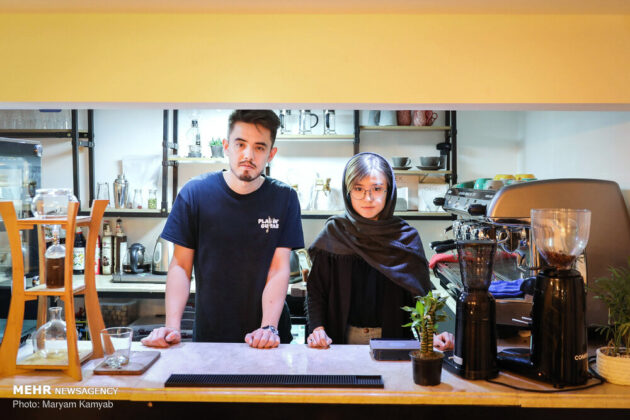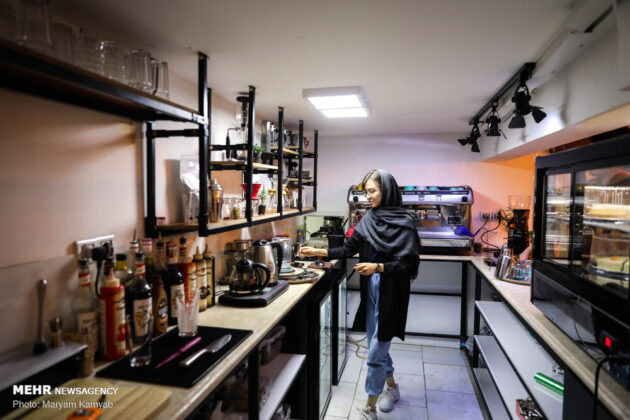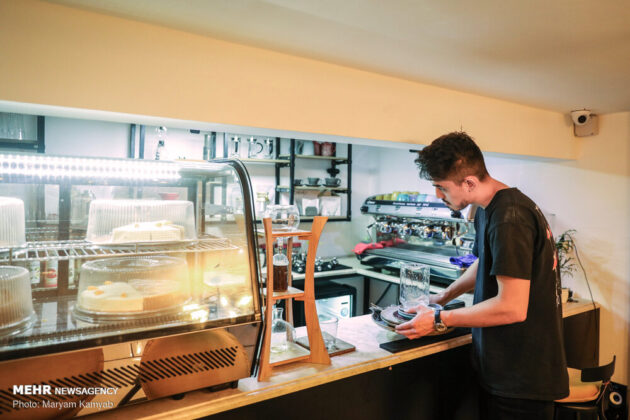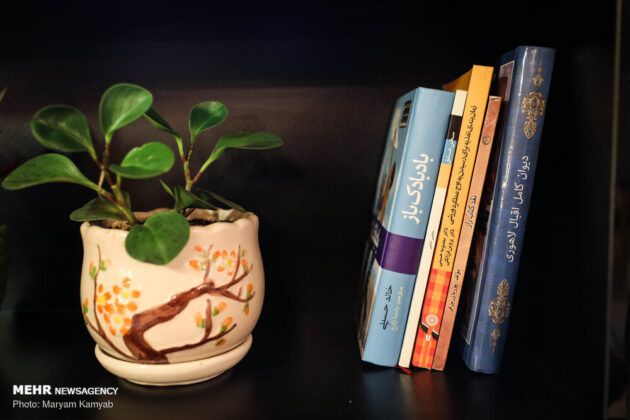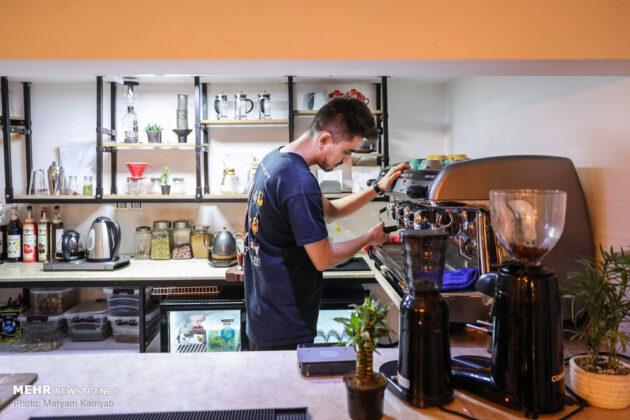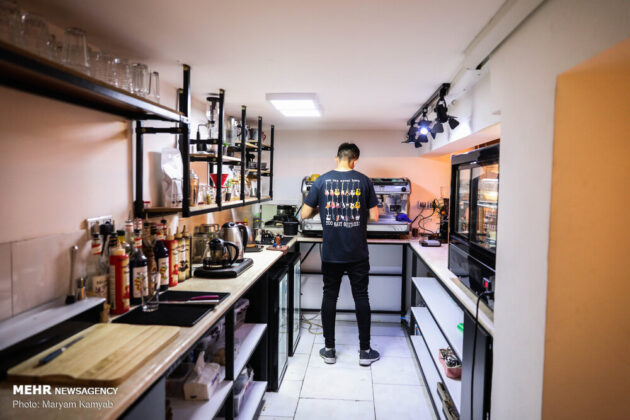You may have seen professional Afghan baristas and chefs in Iranian restaurants; however, the Telma café is the first café in Tehran run be a number of young Afghan individuals.
The idea of opening the café was that of two young Afghans, namely Fatemeh Jafari and Hamed Azar. In an interview with Mehr News Agency, they have elaborated on their business and how it all started.
“We have not published any special advertisements, yet,” says 21-year-old Jafari, who is a law student.
“Our customers post photos of our café on Instagram as story with the caption ‘an interesting café run by Afghan folks’,” she says.
“So, after visiting the café’s Instagram page, a number of our countrymen living in Europe also visited us when they travelled to Iran to see what’s going on here!” says Jafari.
“We also have other colleagues all of whom are Afghan nationals and have other jobs. We met them after our friends introduced them,” she says.
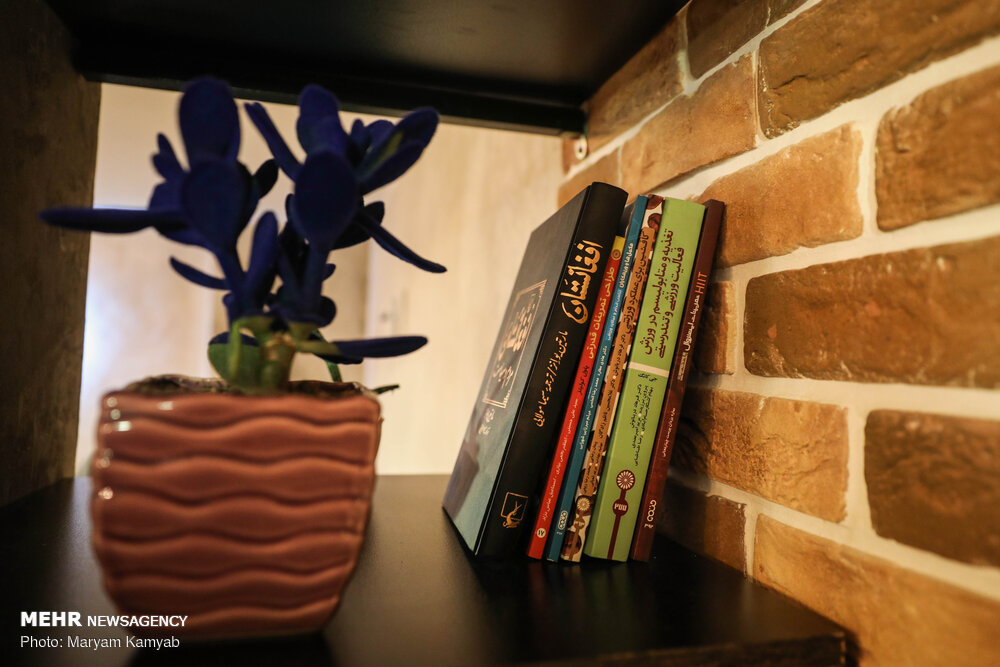
“We have not opened the café for Afghan people only. We have many Iranian friends who keep visiting our café. Even on some occasions, half of our customers were Iranian and half Afghans. The café has a friendly atmosphere, too,” she says.
Hamed Azar, the other young Afghan who has contributed to the opening of this café, is a civil engineering student. Like many other Afghan boys, he worked hard when he was young. He used to work as a welder, blacksmith and tailor. He also worked in the recycling industry.
Asked how they were able to open a café in a good neighbourhood in central Tehran, Jafari says they have done so by cutting down on many nonessential costs.
“Can you see these chairs and tables? Hamed himself made them. And instead of spending money on decoration, we used it to make a down payment, buy a better coffee maker, etc.,” she says.
“I worked professionally and on a full-time basis for around four years except the time I spent at university. A major part of the money [we used to open the café] was our own savings. Of course, we got financial help from our families, too,” says Beigi.
“Even if I were in Afghanistan, I would launch a business. I grew up and was educated here,” he says.
“I used to play for the Karaj football team for some time and I had Iranian playmates. I have had both Iranian and Afghan friends,” he adds.
“I cannot say that I don’t like it here or that we’ve reached a deadlock. I could have left Iran with the same money I spent on opening the café, but I preferred to stay,” he says.
“The rise in the exchange rate for the dollar is for all of us, Afghans and Iranians alike. When I can do something which satisfies me and for which Gods helps me, why should I do it somewhere else? I like Iran. We grew up here,” says Beigi.
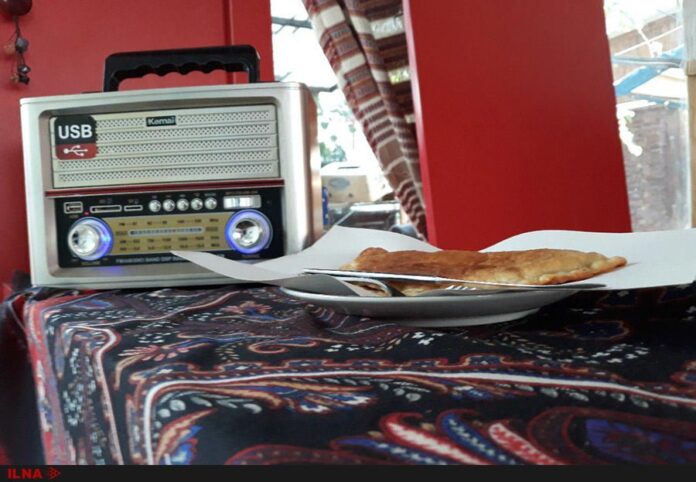
The important difference between a café and other food and drink outlets is the cultural atmosphere at the get-togethers there. The special feature of this café could be introducing the Afghan culture through, for example, small bookshelves around the café, with books such as “The History of Afghanistan” or the famous novel “The Kite Runner.”
However, the Afghan elements have not been completed here.
“Of instance, I want to put two photos in a single frame, the photo of an Iranian historical monument and of an Afghan one. I’d like to show this common feature. I’d also like to serve some Afghan foods and drinks along with other foods at the café; for example, Kabuli palaw, which I love, or Bolani, which is baked bread with vegetables inside. I don’t want this place to be for Afghans only. This is a café which is open to everyone,” he says.
